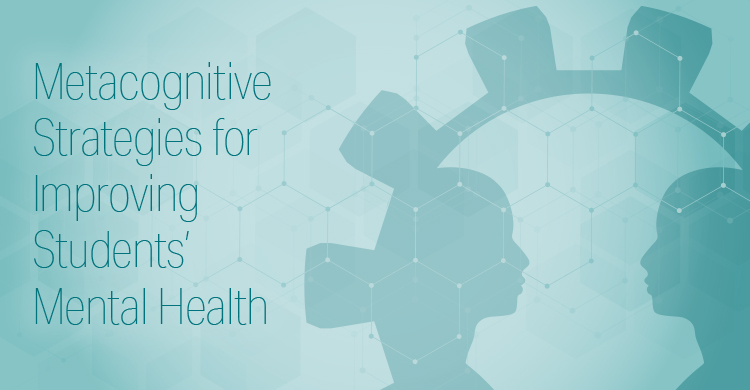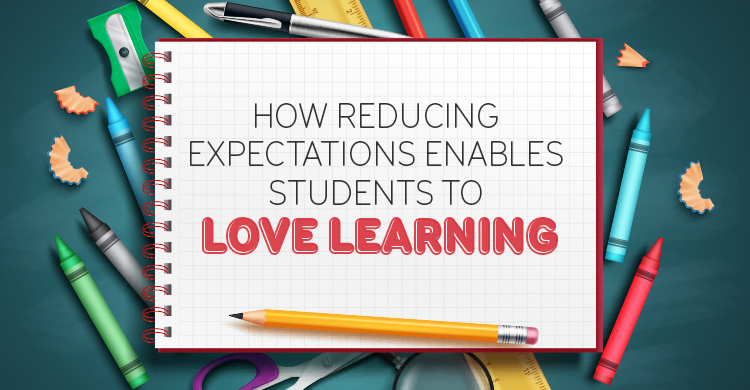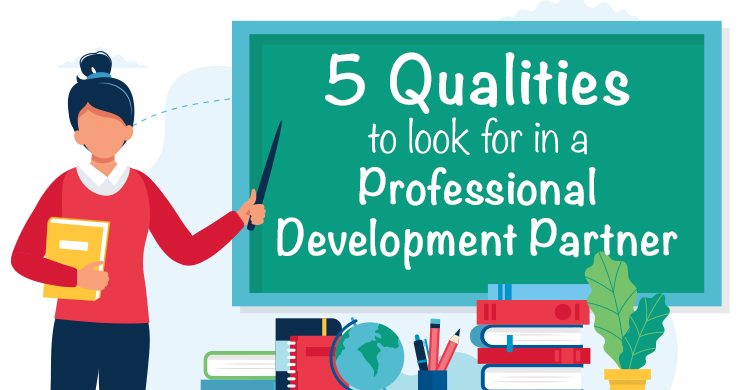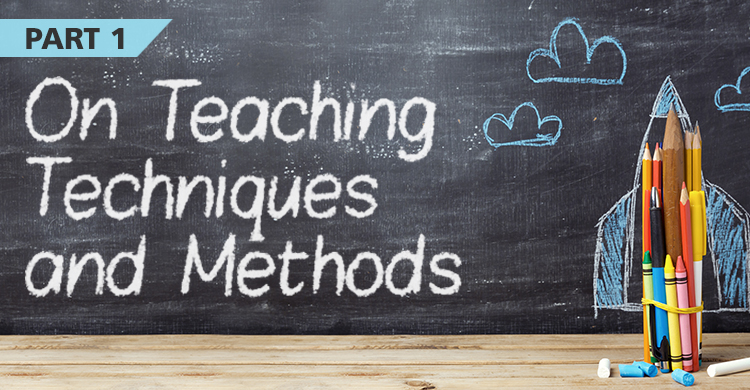Now more than ever, students need skills, strategies, and mental processes to more effectively cope with the many challenges that COVID-19, racial inequities, and distance learning pose.
Although many educators teach a wide range of critical-thinking skills, problem-solving processes, and coping strategies, students often lack the ability to independently identify and apply the appropriate critical-thinking skill, problem-solving process, or coping strategy to help them stay calm, think clearly, and resolve conflicts.
Too many students today struggle to put the pieces together, too often failing to identify which skills or strategies will best serve them in their efforts to independently cope with the conflicts and problems they encounter on a daily basis. As a result, mental health disorders and suicidal ideations continue to rise to frightening heights, with no end currently in sight.
My upcoming title, The Metacognitive Student: How to Teach Academic, Social, and Emotional Intelligence in Every Content Area provides one simple, yet highly effective metacognitive strategy—what we call “Structured SELf-Questioning”—that helps all students independently cope more effectively with the academic, social, and emotional stressors and challenges inherent in the current times.
How The Metacognitive Student Develops Coping Flexibility
Currently, many students are taught a variety of coping strategies, such as deep breathing, mindfulness, and physical exercises, during both in-person and remote instructional time. These strategies are intended to help students to self-calm a range of emotions. Although these strategies can be beneficial, they are often insufficient when it comes to preparing students to independently face and overcome the emotionally charged and complex social situations of daily life today. In order for more students to be capable of independently coping with a wide range of situations, an additional concept related to coping skills—coping flexibility—is needed.
According to Kato, coping flexibility is defined as “the ability to discontinue an ineffective coping strategy (i.e., evaluation coping) and produce and implement an alternative coping strategy (i.e., adaptive coping)” (2012). The Metacognitive Student explains how both coping strategies and coping flexibility can be learned through the use of an innovative metacognitive strategy called structured SELf-questioning.
Structured SELf-questioning targets the social and emotional competencies (self-awareness, self-management, social awareness, and responsible decision-making) and critical-thinking skills (such as identifying, analyzing, and evaluating) inherent in coping flexibility. This book shows how two structured SELf-Questions sets (one for emotional problem solving, and one for academic and social problem solving) can be embedded and taught through evidence-based best practices to develop all students’ coping flexibility without the need for additional curriculum or instructional time.
For example, the first step in the Emotional SELf-questioning set, Empathy, asks, “How am I feeling?” This book explains how teachers utilize this SELf-question to address a variety of academic objectives (e.g., in reading to help students make text-to-self connections, or in math when students get stuck on a word problem). This same SELf-question is then utilized by students at home or outside of school when they are experiencing emotional distress, to better help all students independently demonstrate the SEL competency of self-awareness: identifying one’s emotions (CASEL, 2020).
Without a strategy, many students struggle to identify their emotions accurately, analyze the situation sufficiently, and evaluate which coping strategy or solution is best fit for the situation at hand. Structured SELf-questioning is that strategy that scaffolds students’ step-by-step approach to coping flexibility by prompting their thinking each step of the way.
How The Metacognitive Student Develops Cognitive Flexibility
The Metacognitive Student: How to Teach Academic, Social, and Emotional Intelligence in Every Content Area shows how necessary this metacognitive strategy is not only for students to develop coping flexibility, but also the cognitive flexibility needed to make better use of their education, inherent intelligence, and character strengths.
As with coping strategies, teachers are currently teaching a long list and wide range of cognitive skills and problem-solving processes, which many students struggle to make best use of. The Common Core State Standards (CCSS) require teachers to instruct students on over 100 cognitive skills, including identifying, analyzing, and evaluating. Additionally, students are taught a myriad of different problem-solving frameworks, such as the scientific method, math problem-solving processes, engineering loops, and design thinking models. Although teaching students a variety of cognitive skills and varied multistep processes for problem solving is valuable, when only taught in individual, siloed academic disciplines, many students do not develop the cognitive flexibility needed to make optimal use of these cognitive skills and processes.
One way to define cognitive flexibility is our ability to switch between different mental sets and strategies (Diamond, 2013; Miyake & Friedman, 2012). Without cognitive flexibility, students often struggle to apply learned coping strategies, cognitive skills, and multistep problem solving in a variety of academic content areas and in the real world. Not only do students today need cognitive flexibility to succeed academically, but the World Economic Forum’s Future of Jobs Report lists cognitive flexibility as a top-ten employability skill (2018).
The Metacognitive Student shows all teachers, in every content area, in every grade level, how it is possible to teach all students cognitive flexibility through the same metacognitive strategy of structured SELf-questioning that also develops coping flexibility.
Metacognition Brings Coping and Cognitive Flexibility Together
The Metacognitive Student demonstrates how any student using structured SELf-questioning is prompted to apply both coping and cognitive flexibility. For example, in reading comprehension, the question set changes the whole dynamic of the commonly heard, “I don’t get it.” Students often feel frustrated when they don’t comprehend what they read. With practice using the two structured SELf-Question sets, students easily begin to recognize when they are frustrated and how to use the Emotional SELf-question set to help them independently self-calm first. Once calm, students recognize they are ready to try to problem solve the academic challenge at hand.
The Academic and Social SELf-question “What do I need to know?” prompts students to see what the problem with the text is and which reading comprehension strategy may be best to lead to understanding. Perhaps students determine they need more background knowledge. This leads them to the next step of brainstorming possible ways to create more background knowledge. With practice, students develop the habit of mind to take a step back in any academic and social situation and ask themselves “What do I need to know?”
When used consistently, students transfer this SELf-question, along with the entire problem-solving SELf-questioning set, to all core academic content areas within the classroom and to all aspects of life beyond the walls of the classroom.
The key to the success of structured SELf-questioning in developing both coping and cognitive flexibility involves training students how to take a step back and think about both their feelings and their thinking. In order to do this, students need the SEL competencies of self-awareness and self-management. Since metacognition has been defined as “awareness and management of one’s own thought” (Kuhn & Dean, 2004, p. 270), these SEL competencies are intrinsic in metacognition. This book shows how to take far-reaching learning outcomes as complex and abstract as metacognition, self-awareness, and self-management and make them concrete and simple for teachers and students.
Practical and Evidence-Based
The metacognitive strategy of structured SELf-questioning is both practical and evidence-based because it has been effective at synthesizing research and best practices from the field of psychology into one simple, practical strategy that all teachers can teach. Much of the evidence-based curriculum components and research-based practices from the field of psychology that structured SELf-questioning infuses into the academic curriculum and instructional practices comes from the work of Dr. Maurice Elias, psychology professor at Rutgers University, and his colleagues, including:
- Linking thinking skills inherent in both SEL competencies and academic standards
- Providing one problem-solving and decision-making strategy that all students can internalize and transfer to academic, social, and emotional contexts
- Asking structured, open-ended questions to guide students’ self-talk
- Providing visuals, names, and prompts to assist student internalization
(Butler, Romasz-McDonald, & Elias, 2011)
Finally, developing students’ character traits, such as flexibility and perseverance, is foundational to developing students’ coping and cognitive flexibility. To that end, The Metacognitive Student also intertwines best practices in character development from Dr. Maurice Elias and his colleagues in The Other Side of the Report Card. At the end of every chapter of this book is a “Character Corner” section that demonstrates how students can develop virtues, such as emotional regulation and perseverance, through a performance character development approach (Elias, Ferrito, & Moreci, 2016).
Dr. Martin Luther King Jr. said that “intelligence plus character, that is the goal of true education.” Until now, the dream of teaching students “intelligence plus character” has seemed only aspirational, because teachers across the nation have found it almost impossible to add anything else or new to their already overly demanding curriculum and job demands. This book shows how it is possible to help get education from “intelligence plus character,” to “intelligence and character.”
References:
Butler, L. B., Romasz-McDonald, T., & Elias, M. J. (2011). Social decision making/social problem solving: A curriculum for academic, social, and emotional learning: Grades K-1. Champaign, IL: Research Press.
Collaborative for Academic, Social, and Emotional Learning (CASEL). (2020). Core SEL Competencies. Retrieved from https://casel.org/sel-framework/
Diamond, A. (2013). Executive functions. Annu. Rev. Psychol. 64, 135–168. doi: 10.1146/annurev-psych-113011-143750
Elias, M.J., Ferrito, J.J. & Moreci, D.C. (2016).The Other Side of the Report Card: Assessing Students’ Social, Emotional and Character Development. Thousand Oakes, California: Corwin.
Kato, T. (2012). Development of the Coping Flexibility Scale: Evidence for the coping flexibility hypothesis. Journal of Counseling Psychology, 59(2), 262–273. https://doi.org/10.1037/a0027770
Miyake, A., and Friedman, N. P. (2012). The nature and organization of individual differences in executive functions: four general conclusions. Curr. Dir. Psychol. Sci. 21, 8–14. doi: 10.1177/0963721411429458
World Economic Forum, The Future of Jobs Report 2018, 2018.
Richard K. Cohen is assistant superintendent of Metuchen School District in New Jersey and serves as co-adjunct faculty for Rutgers University. He is former principal of Red Bank Primary School in Red Bank, New Jersey, a Title I school with a majority English-learner student population, where he led collaborative school-improvement efforts resulting in dramatic increases in student proficiencies.
Deanne Kildare Opatosky has worked in the field of education for over twenty years. As president of BDO Consulting Services, she facilitates extensive professional development for both novice and experienced teachers in urban and suburban settings throughout New Jersey.
James Savage is a term assistant professor of English at George Mason University in Fairfax, Virginia. He teaches undergraduate writing courses while pursuing a PhD in writing and rhetoric focused on issues of language justice. John has taught academic writing to undergraduate and graduate international students as part of a joint venture between international study specialists (INTO) Mason and George Mason.
Susan Olsen Stevens is an educational consultant in Saint Augustine, Florida. Her teaching experience spans private, public, and international schools, as well as homeschooling. Susan’s thirty-one years of teaching are roughly divided into halves: she spent one half teaching grades preK–12 art, including AP levels, and the other half teaching grades 3–12 English language arts.
Edward P. Darrah is a licensed and certified professional counselor in the state of Pennsylvania and is triple board-certified in counseling, school counseling, and telemental health. He is currently a full-time staff member at Temple University and serves as a mental health and performance counselor with Temple University athletics.






